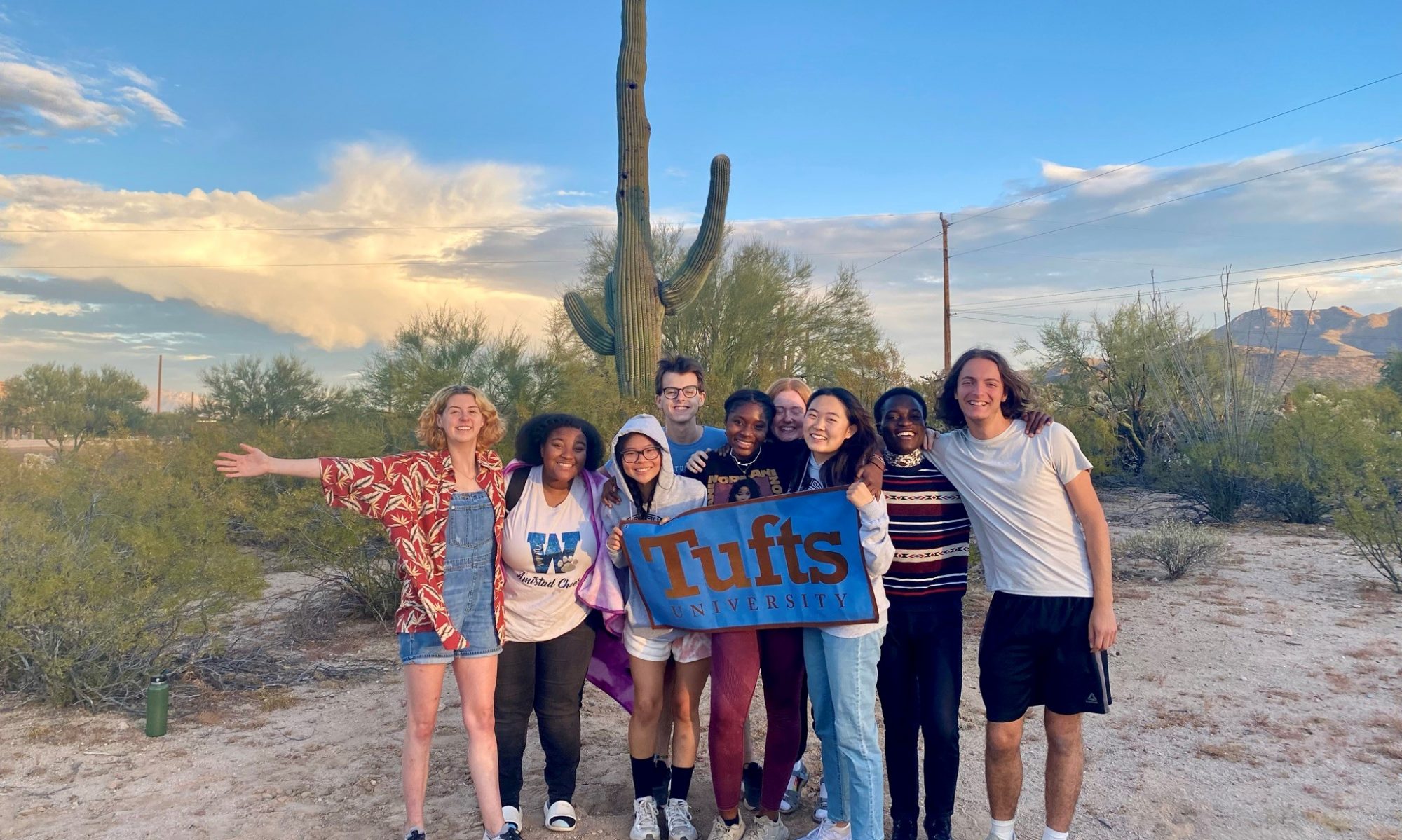By Abigail, Tufts 1+4 Participant
My hands struggle to remain steady as they carefully transcribe each character into my notebook. My feet, propped up on the metal rail in front of me, try to keep balance as the bus races down the hill, turning sharply and stopping every few seconds to open the door and let more people in. In both ears sings the soft and silky voice of Yoon Mirae — Korean R&B — in an only somewhat successful attempt to block out all the noise around me — the constant swishing of the folding doors, open, shut; the subdued hum of men and women coming back home from work or shopping; the excited shouts of grinning schoolchildren just getting out of school.
My eyes lose their light-source temporarily, a shadow hovering over my paper. One of those students has sat next to me, and is leaning over to see what it is that I am doing. “¿Eso es inglés?” — is that English? — she asks curiously, staring at the Chinese characters on the page.“No,” I begin to explain in Spanish, removing my headphones and placing them in my pocket. “This is Mandarin Chinese. It’s a language that uses characters rather than an alphabet.” She looks up at me, fascinated and perhaps a bit confused. As we continue conversing, I explain to her that I take Mandarin classes in the city center, where I’m heading now, and she tells me about herself — her age, grade level, and school she goes to. She still looks interested in the strokes I’ve written, so I ask her if she’d like to learn a bit of something. “Yes!” she exclaims excitedly. So I turn the pages until I get to where I wrote down the numbers and begin teaching. “Uno” is “yī”, “dos” is “èr”, and so on. She repeats after me, seeming to soak it in. Then her stop comes up and her siblings, who were standing nearby, call her to get off. She bids me farewell Ecuadorian-style — never “goodbye” but rather “see you later” — as she demounts the bus.
That singular, brief interaction was one of the most memorable experiences of my bridge year. At that moment, just as the little girl got off, I realized what a modern interaction that was — me, a native English speaker, listening to Korean music, speaking in Spanish to an Ecuadorian schoolgirl about the Mandarin Chinese language. This is one of the best examples of cultural globalization that I have personally been a part of. 500 hundred years ago, or even 100 years ago, such an interaction simply would not have been possible. Technology has made it possible to listen to music in practically any language, schools and exchange programs make it possible for foreigners like me to spend some time in Cuenca not just as a tourist, and people’s increasing curiosity of cultures and countries far from their own make it possible to study a wide variety of languages. To be a part of such a complex intercultural exchange, even when it seems to be something as simple as teaching an Ecuadorian schoolgirl some Mandarin numbers, filled me with a sense of thankfulness for the beautiful, diverse, and ever increasingly connected world we live in today.

